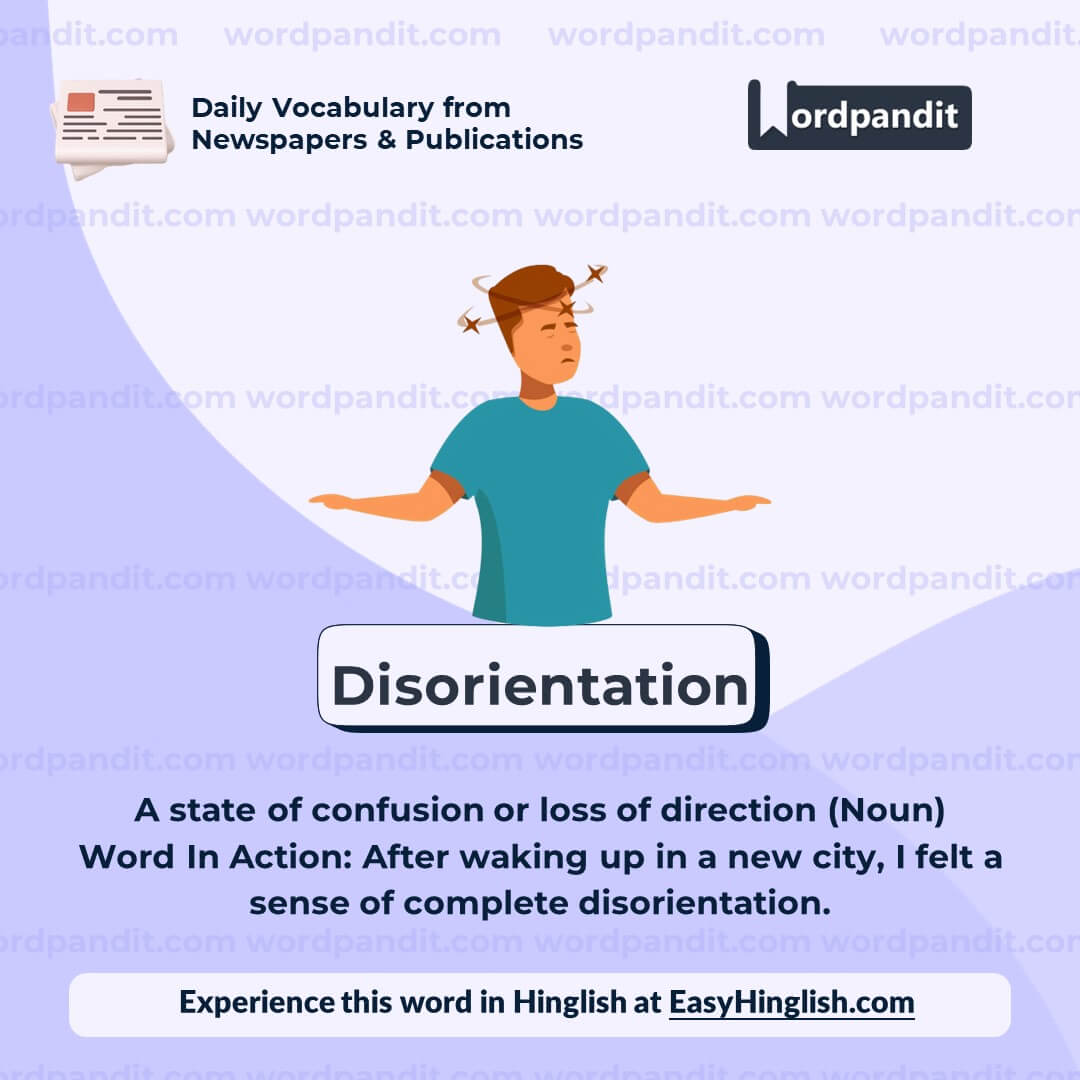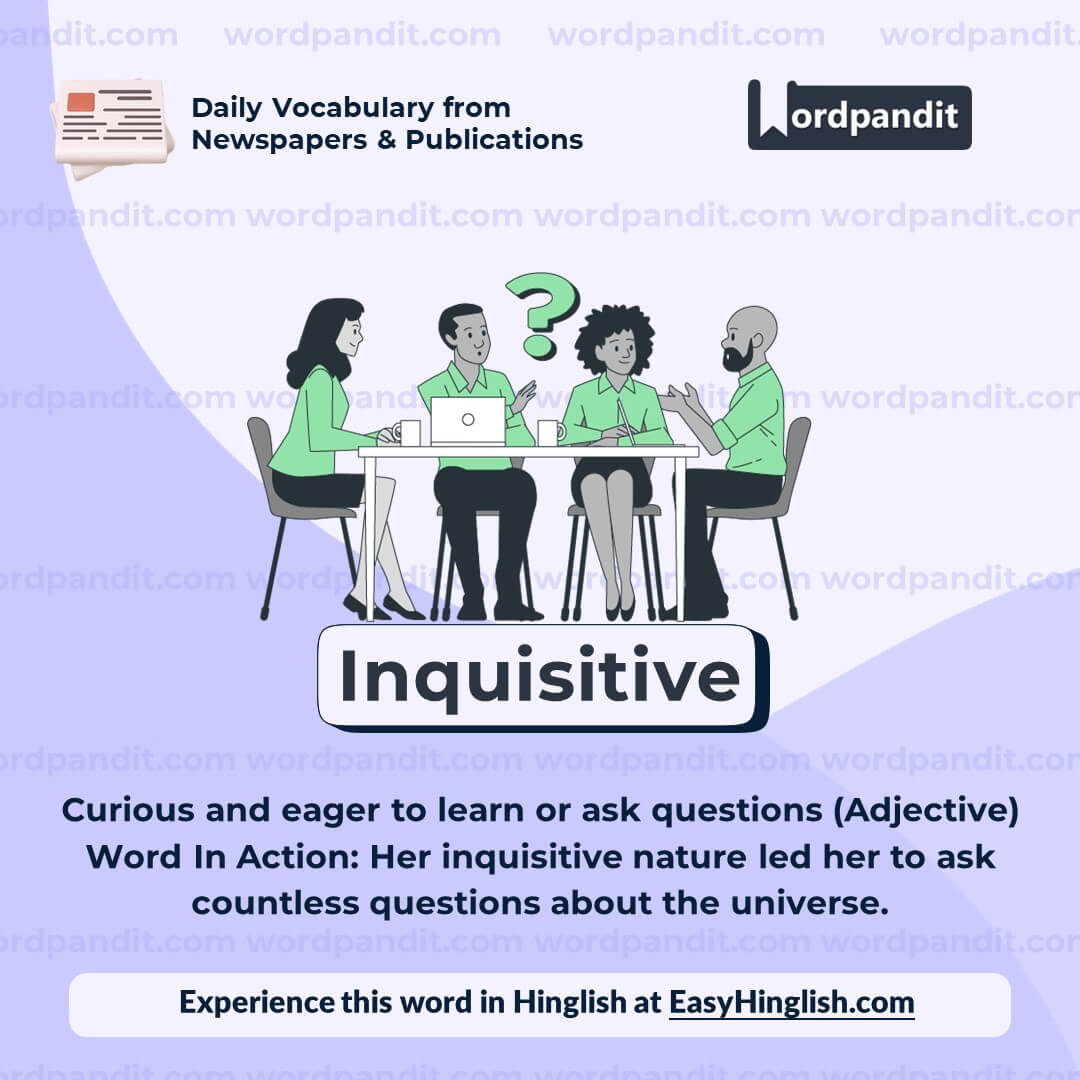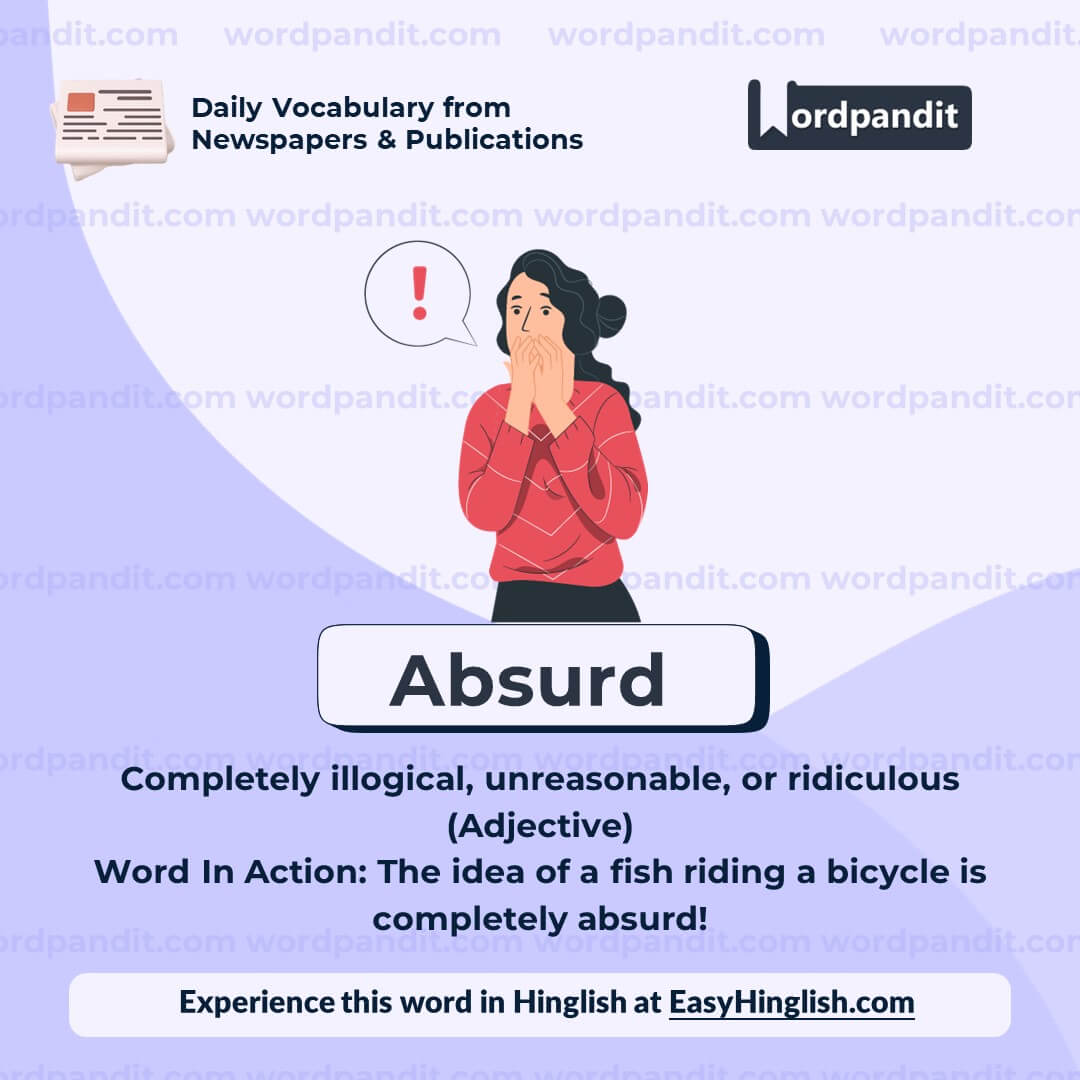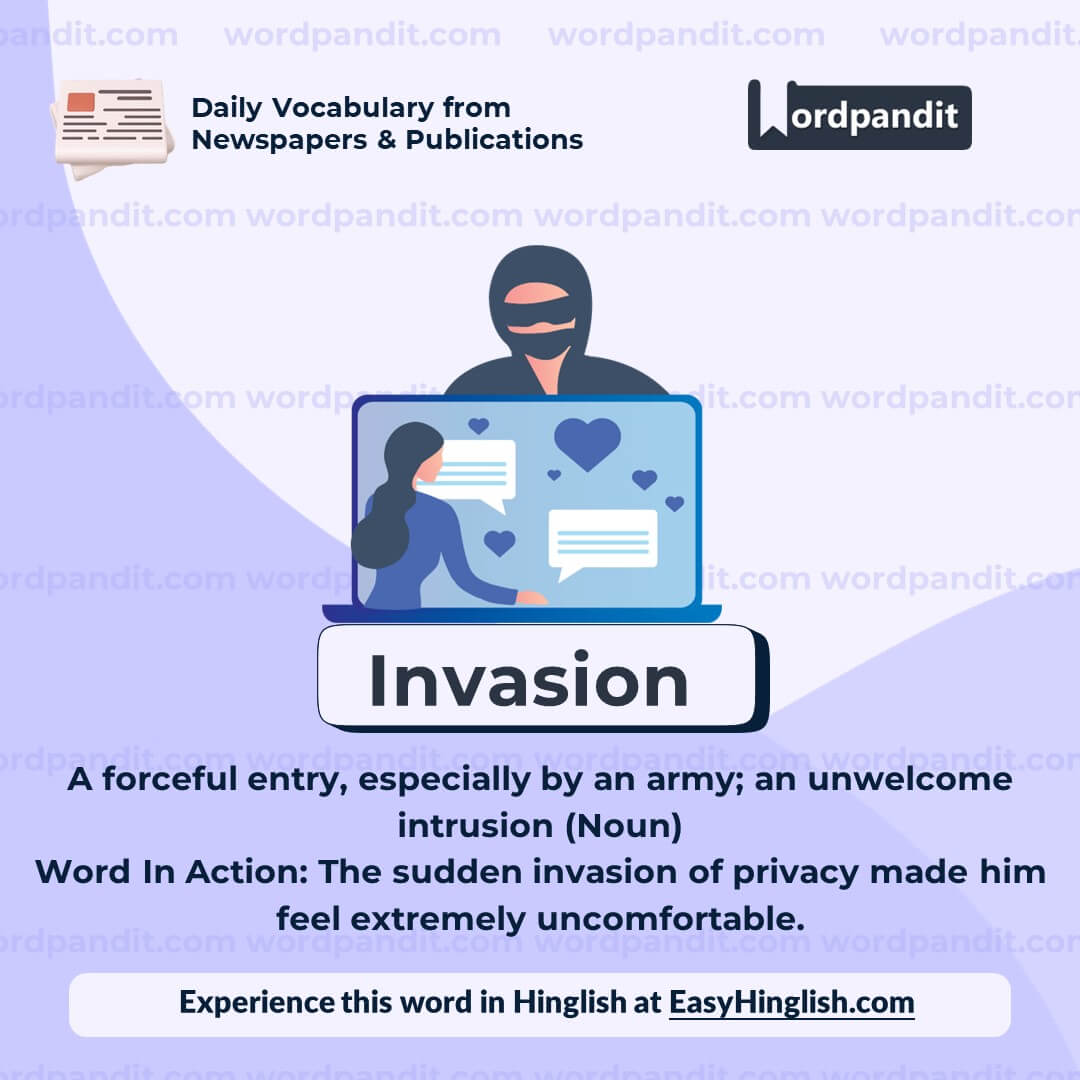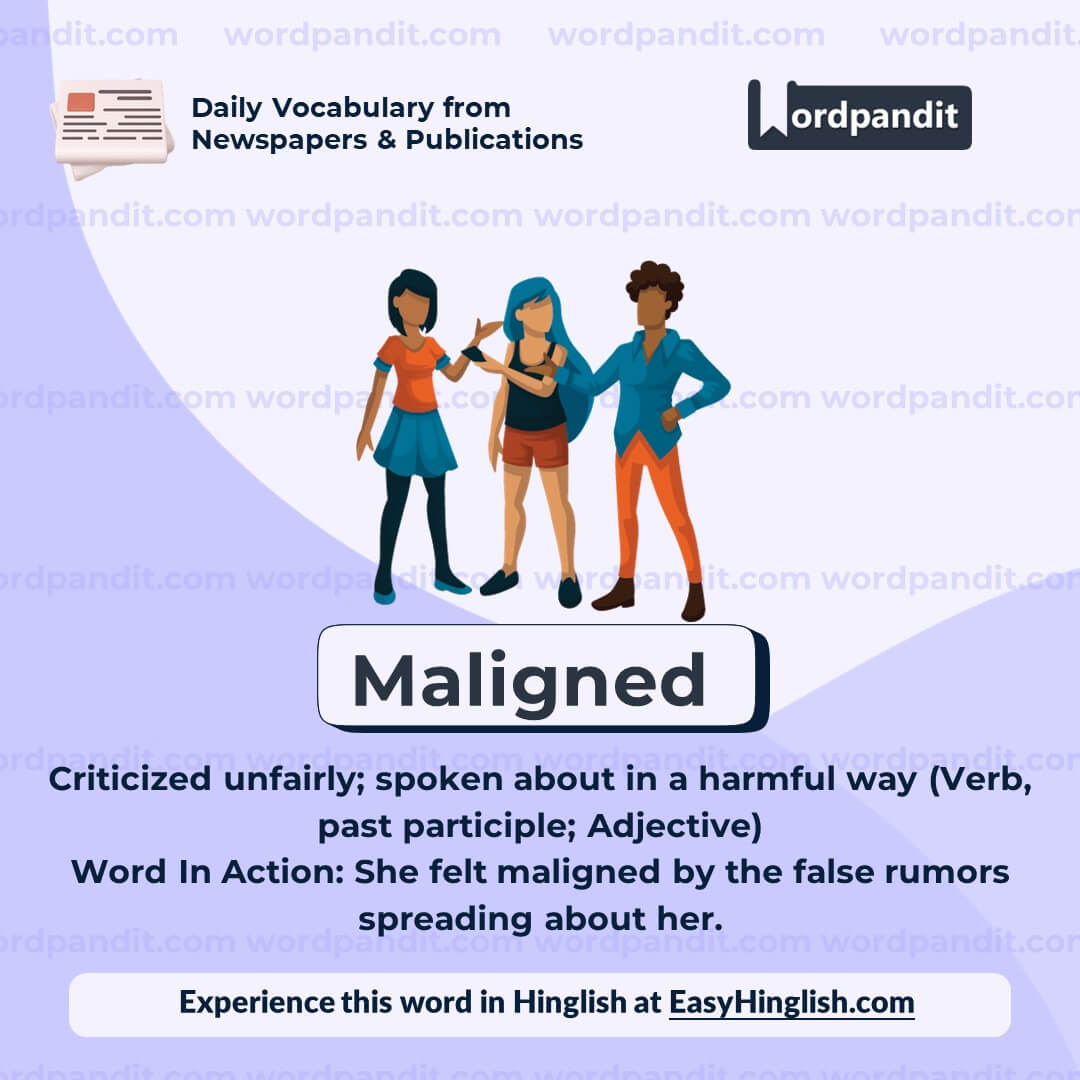Daily Vocabulary from International Newspapers and Publications
Expand Your Vocabulary with Wordpandit’s Global Vocabulary Hub
At Wordpandit, we are committed to helping you develop a truly global vocabulary by drawing from some of the most respected international publications. This section is designed to keep you ahead of the curve by introducing you to words that define global conversations and trends.
The Power of Global Sources
To help you think and communicate on a global scale, we curate vocabulary from renowned international sources, such as:
- The New York Times
- The Washington Post
- BBC
- The Guardian
- The Economist
- Scientific American
- Psychology Today
- And many more...
Stay Global, Stay Competitive
Our daily updates from international publications ensure you are consistently exposed to new words that reflect global news and developments, making sure your vocabulary is not only current but also globally relevant.
Enhance Your Global Perspective
Whether you’re preparing for international exams, aiming to excel in global business communication, or want to enhance your language skills for personal growth, Wordpandit offers the resources you need to thrive in a global context.
Effective Learning, Global Reach
Our learning methodology combines global examples, memory aids, and interactive activities, allowing you to internalize new words effectively and apply them in real-world scenarios.
Begin Your Global Vocabulary Journey Now!
Why Choose Wordpandit?
Practical Learning: Focus on words you'll actually encounter in real-world reading, enhancing your comprehension and communication skills.
Diverse Content: From current affairs to scientific breakthroughs, our varied sources expose you to vocabulary across multiple domains.
Effortless Integration: Make Wordpandit a part of your daily routine. Just a few minutes each day can significantly boost your lexicon over time.
Your Path to Vocabulary Mastery
- Visit our Daily Vocabulary section regularly
- Explore new words and their usage in context
- Practice incorporating these words into your own writing and speech
- Track your progress as your vocabulary expands
Start Your Journey Today
Embark on your vocabulary enhancement journey with Wordpandit. By consistently engaging with our daily posts, you'll build a robust vocabulary that serves you well in academic, professional, and personal contexts.
Remember, a word a day keeps linguistic limitations at bay. Make Wordpandit your daily companion in the quest for vocabulary excellence!
WORD-1: Disorientation
Context:
"In *Philosophical Investigations*, Ludwig Wittgenstein describes the experience of grappling with a problem as a kind of disorientation." - *Psychology Today*
Explanatory Paragraph:
Disorientation refers to a state of confusion in which a person loses their sense of direction, position, or understanding. It can be physical, such as getting lost in an unfamiliar place, or mental, such as struggling with a complex problem. Wittgenstein’s use of the term suggests the mental struggle of trying to comprehend deep philosophical ideas.
Meaning: A state of confusion or loss of direction (Noun)
Pronunciation: dis-or-ee-en-TAY-shun
Difficulty Level: ⭐⭐⭐ Intermediate
Etymology: From Latin *dis-* (apart, away) + *orientare* (to set or arrange), meaning "to lose one's bearings."
Synonyms & Antonyms:
Synonyms: confusion, bewilderment, perplexity, uncertainty
Antonyms: clarity, understanding, awareness, focus
Usage Examples:
- After waking up from surgery, she experienced a brief moment of disorientation before recognizing her surroundings.
- The sudden loss of GPS signal left the hikers in complete disorientation.
- Studying abstract concepts in quantum physics often causes intellectual disorientation among students.
- Moving to a new country can bring a sense of cultural disorientation as one adapts to different customs.
Cultural Reference:
"Disorientation is a common theme in existentialist literature, where characters struggle to find meaning in a seemingly chaotic world." - *Jean-Paul Sartre's Philosophy*
Think About It:
Have you ever experienced a moment of disorientation in your life? How did you regain your sense of direction or clarity?
Quick Activity:
Describe a situation where you felt disoriented, whether physically or mentally. What strategies did you use to overcome it?
Memory Tip:
Think of "dis-orientation" as "losing your orientation"—when you don’t know where you are or what’s going on.
Real-World Application:
Disorientation is common in stressful situations, such as during emergencies, sudden life changes, or when learning something entirely new. Developing strategies to stay calm and regain focus can help navigate these moments.
WORD-2: Inquisitive
Context:
"Hannah Arendt captures this self-inquisitive dimension of philosophy when she in a lecture writes that the 'very word con-science, at any rate, points in this direction insofar as it means ‘to know with and by myself,’ a kind of knowledge that is actualized in every thinking process’." - *Psychology Today*
Explanatory Paragraph:
Inquisitive describes a person’s tendency to be curious, eager to learn, and ask questions. It reflects a strong desire to seek knowledge, understand the world, and explore new ideas. In philosophy, being inquisitive often means engaging in deep self-reflection and questioning one’s own thoughts, as suggested in Hannah Arendt’s discussion of conscience and self-inquiry.
Meaning: Curious and eager to learn or ask questions (Adjective)
Pronunciation: in-KWIZ-uh-tiv
Difficulty Level: ⭐⭐⭐ Intermediate
Etymology: From Latin *inquirere* (to seek after, examine), which combines *in-* (into) and *quaerere* (to ask, seek).
Synonyms & Antonyms:
Synonyms: curious, probing, questioning, investigative
Antonyms: indifferent, uninterested, apathetic, uninquiring
Usage Examples:
- The inquisitive student asked insightful questions during the lecture, eager to understand every detail.
- Her inquisitive nature led her to travel the world and explore different cultures.
- The detective’s inquisitive mind helped him solve the mysterious case.
- Children are naturally inquisitive, always asking “why” about everything they see.
Cultural Reference:
"The scientific revolution was driven by inquisitive minds like Galileo and Newton, who questioned traditional beliefs and sought new knowledge." - *History of Science*
Think About It:
Do you think being inquisitive is always a good trait, or can it sometimes cause problems? Why?
Quick Activity:
Write down three things you have always been curious about but never researched. Challenge yourself to look up one of them today!
Memory Tip:
Think of “inquisitive” as “in-quiz-itive”—someone who always wants to “quiz” or ask questions about things.
Real-World Application:
Being inquisitive helps in learning new skills, excelling in academics, and solving problems creatively. It is a valuable trait for researchers, journalists, and innovators.
WORD-3: Absurd
Context:
"Shortly after Trump gave his White House press conference - in which he said he wanted the US to 'take over' Gaza - Hamas official Sami Abu Zuhri called the proposal 'ridiculous' and 'absurd'." - *BBC*
Explanatory Paragraph:
Absurd refers to something that is completely illogical, unreasonable, or ridiculous. It describes situations, statements, or ideas that seem senseless or defy common sense. The word is often used to criticize proposals, arguments, or actions that appear impractical or foolish. In literature and philosophy, "absurd" is also associated with the idea that human life has no inherent meaning, as explored in existentialist works.
Meaning: Completely illogical, unreasonable, or ridiculous (Adjective)
Pronunciation: ab-SURD
Difficulty Level: ⭐⭐ Beginner
Etymology: From Latin *absurdus*, meaning "out of tune" or "incongruous," later evolving to mean "senseless" in English.
Synonyms & Antonyms:
Synonyms: ridiculous, nonsensical, illogical, preposterous
Antonyms: reasonable, logical, rational, sensible
Usage Examples:
- The idea that humans could live on Mars without any preparation is completely absurd.
- He laughed at the absurdity of the situation when he realized he had been searching for his glasses while they were on his head.
- The comedian’s absurd jokes had the audience roaring with laughter.
- Many existentialist philosophers argue that life itself is inherently absurd, lacking any predetermined meaning.
Cultural Reference:
"The Theatre of the Absurd, a dramatic movement in the 20th century, used illogical and meaningless dialogues to reflect the absurdity of human existence." - *Introduction to Modern Drama*
Think About It:
Can something that seems absurd at first later turn out to be brilliant? Can you think of any historical examples?
Quick Activity:
Write a short paragraph describing an absurd situation, either real or imaginary. Try to make it as exaggerated as possible!
Memory Tip:
Think of "absurd" as something so "absurdly" ridiculous that it makes no sense at all.
Real-World Application:
The word "absurd" is often used in politics, comedy, and philosophy. It helps people express disbelief or highlight the irrational nature of certain ideas or behaviors.
WORD-4: Invasion
Context:
"In the interview with Morgan, Zelenskyy put the Ukrainian death toll at 45,100, with 390,000 injured since the full-scale invasion in February 2022." - The Guardian
Explanatory Paragraph:
"Invasion" refers to the forceful entry or incursion into a place, often by a military force. It can also mean an overwhelming intrusion, such as an invasion of privacy. The word is commonly used in political, historical, and personal contexts to describe aggressive or unwelcome entry.
Meaning: A forceful entry, especially by an army; an unwelcome intrusion (Noun)
Pronunciation: in-VAY-zhun
Difficulty Level: ⭐⭐⭐ Intermediate
Etymology: From Latin "invadere" (to enter forcefully), composed of "in-" (into) and "vadere" (to go, rush).
Synonyms & Antonyms:
Synonyms: Incursion, attack, assault, raid, infiltration
Antonyms: Retreat, withdrawal, surrender, defense
Usage Examples:
- The invasion of Normandy in World War II was a turning point in the conflict.
- She felt an invasion of privacy when reporters started following her every move.
- The sudden invasion of tourists overwhelmed the small coastal town.
- Cybersecurity experts warn of an invasion of personal data through hacking attempts.
Cultural Reference:
"The Mongol invasion of Europe in the 13th century reshaped history, as their military strategies were unmatched at the time." - History.com
Think About It:
How does the concept of "invasion" apply beyond military conflicts, such as in technology or personal privacy?
Quick Activity:
List three different types of invasions (military, digital, or personal) and describe how they impact people or society.
Memory Tip:
Think of "invasion" as "in + vision"—something forcefully entering your space or view, often unwanted.
Real-World Application:
The term "invasion" is widely used in news reports about military conflicts, cybersecurity threats, and even ecological concerns, such as the invasion of non-native species in an ecosystem.
WORD-5: Maligned
Context:
"Metaphor was once maligned by philosophers." - Psyche
Explanatory Paragraph:
"Maligned" means to speak about someone or something in a harmful, critical, or unfair way. When something is maligned, it is often misrepresented or treated with undue negativity. In this context, philosophers once criticized metaphor as misleading or inappropriate in logical discourse.
Meaning: Criticized unfairly; spoken about in a harmful way (Verb, past participle; Adjective)
Pronunciation: muh-LYND
Difficulty Level: ⭐⭐⭐ Intermediate
Etymology: From Old French "malignier" (to plot against), derived from Latin "malignare" (to act wickedly), based on "malignus" (evil or harmful).
Synonyms & Antonyms:
Synonyms: Vilified, slandered, defamed, disparaged, denounced
Antonyms: Praised, honored, commended, celebrated, respected
Usage Examples:
- Galileo was once maligned by the Church for his heliocentric theories.
- Social media often spreads misinformation that maligns public figures unfairly.
- Despite being maligned in his early years, the artist eventually gained worldwide recognition.
- The new policy was maligned by critics, but it ultimately proved beneficial.
Cultural Reference:
"Niccolò Machiavelli was widely maligned for 'The Prince,' as many misinterpreted his work as endorsing ruthless political tactics." - History Today
Think About It:
Can you think of a historical figure or idea that was once maligned but later gained appreciation? Why do perspectives change over time?
Quick Activity:
Write a short paragraph about something that is often maligned in modern society but may have hidden benefits.
Memory Tip:
Remember "maligned" by linking it to "mal" (which means "bad") and "lined"—think of something being unfairly put in a bad line of thought.
Real-World Application:
"Maligned" is commonly used in discussions about politics, media, and historical reinterpretations, helping to analyze how public opinion shifts over time.



